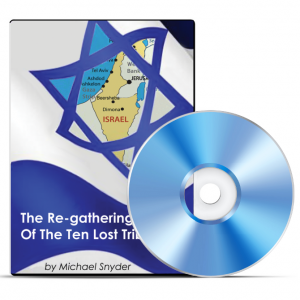
United Nations General Secretary is publicly admitting that the worldwide climate change treaty will be enforced by global government. Up until now, many have dismissed reports that the treaty being discussed in Copenhagen would represent a giant step towards world government. However, when the head of the United Nations tells an interviewer for the Los Angeles Times that “we will establish a global governance structure to monitor and manage the implementation of this”, what are we all supposed to think? In fact, a former official in the Thatcher administration, Lord Christopher Monckton, has seen a draft of the treaty being discussed and he says that it creates 700 new bureaucracies which will implement and enforce the provisions of the climate change treaty. These bureaucracies will have power to enforce the new world environmental laws that supersedes the authority of national governments around the world.
Fortunately, it appears that a formal treaty will not be signed in Copenhagen. However, Ban Ki-Moon is hopeful that a “binding political deal” will be signed.
So what is the difference between a “treaty” and a “binding political deal”?
That is a good question.
Ban Ki-Moon put it this way during his interview with the Los Angeles Times in response to a question of whether or not a political deal in Copenhagen is still possible….
We need to have a very strong, robust, binding political deal that will have an immediate operational effect. This is not going to be a political declaration, just for the sake of declaration. It is going to be a binding political deal, which will lead to a legally binding treaty next year.
However, Ban Ki-Moon does expect a final climate change treaty to be signed by mid-2010.
What most people do not realize is that the treaty being discussed in Copenhagen will institute new world taxes which would transfer wealth from “rich nations” as payment for the “carbon debt” that we have accumulated.
Ban Ki-Moon also commented on this during his interview with the L.A. Times….
Developed countries have political and moral responsibilities, therefore they have to do more, first of all by coming out with ambitious targets to reduce greenhouse gas emissions, and they should be prepared to provide financial support.
We have pretty good agreement on short-term, fast-track financial support in the order of $10 billion for the coming three years. When we agree on a politically binding agreement, this will have immediate operational effect, including financial support from next year.
This financial support will reportedly be ongoing for the life of the treaty.
So when will the treaty end?
Can the United States ever get out of it?
Well, reports from those who have seen the draft treaty indicate that the only way a nation can leave the treaty is if every single other nation agrees.
Now, if “developing nations” are receiving large payments from the United States every single year, how likely do you think it is for every single one of them to vote to allow the U.S. to leave the treaty?
The truth is that the treaty is structured so that the United States would be committed to it forever. According to the draft treaty being considered, no future president or Congress would be able to do anything to get the United States out of the treaty. The only way to get out of it would be a unanimous vote from every single one of the other nations.
This is the kind of deal that Barack Obama wants to lock the United States into.
What a nightmare.









Pingback: We Are Change Colorado Springs » Blog Archive » United Nations Secretary General Ban Ki-Moon Admits That The Climate Change Treaty Will Be Enforced By Global Government()